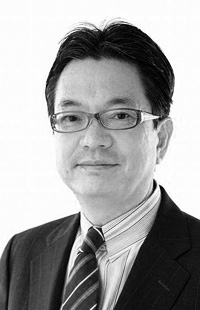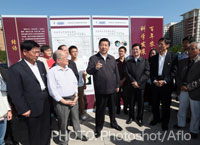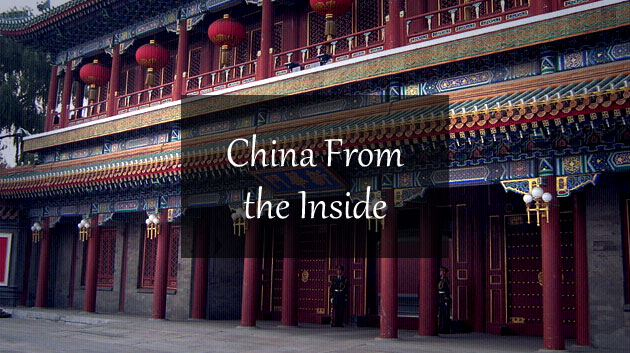Xi Jinping’s ‘Absence’ Indicates a Hardened Stance Towards Japan
Little by little, China is beginning its move towards its ‘global empire’. Masaru Soma, a China expert capable of interpreting the power struggle in the Zhongnanhai, its political centre, provides an insider’s report on the course of China’s international politics. Mr. Soma, a watcher of Xi Jinping, who will become China’s next supreme leader, writes on the current situation influencing China’s top leadership.

Masaru Souma
Born in 1956 in Aomori Prefecture. After graduating with a degree in Chinese from Tokyo University’s Foreign Studies Department, he joined Sankei Newspaper where he held positions that included the head of the Hong Kong branch and the Assistant-Director of the foreign news desk. As a Nieman Fellow, he spent 1998-1999 as an exchange student at Harvard University. He left Sankei Shimbun in 2010, and he currently works as a journalist. He has published many books including Chugoku Kyousantou Ni Kesareta Hitobito (The People Who Disappeared From The Chinese Communist Party) and Xi Jinping No Shoutai (The Real Xi Jinping)3 which he wrote under the pseudonym Kayasawa Izuru. Mr.Souma also penned Shin Koutei – Hu Jintao No Shoutai (The New Emperor – The Real Hu Jintao) (all published by Shogakukan).
China’s next supreme leader, Xi Jinping, the country’s current Vice-President, did not make any public appearances for two weeks after the 1st of September. Theories of ill health surfaced after successive cancellations of meetings with foreign dignitaries such as the U.S. Secretary of State Hillary Clinton. After a flurry of subsequent speculations, including rumors of an admission to a hospital following an automobile accident, as well as an assassination attempt, he attended an event at China Agricultural University in Beijing on the 15th, and Xi was considered to be in good health.
However, during Xi’s ‘absence’, Japan-China relations sunk to extremely critical depths over concerns surrounding the possession of the Senkaku Islands. Violent anti-Japan demonstrations erupted in about 100 Chinese cities, and Xi did not show up. It’s as if Xi were involved in preparations for the demonstrations while he was hidden away.
The preparations for a Japan-oriented military struggle in Xi’s absence
Boshun, an internet news provider with an established reputation for providing information about China, reported on the 15th that Xi appeared to be in excessively high spirits. According to internal Chinese information, during Xi’s absence, the members of the elite cadre were considered to be at an Autumn party convention, where they created countermeasures and preparations for a military struggle against Japan in response to the nationalisation of the Senkaku Islands by the Japanese government.
Moreover, The New York Times reported in America that based on information from a Chinese political analyst with expert knowledge of the Party’s internal affairs, the reason for Xi’s two-week absence was not a health issue, but was most likely political motivated.
Furthermore, if one were to analyse the fact that amid the intensification of the anti-Japan demonstrations, Xi did appear, one could speculate that it was the result of a power struggle among China’s top leadership. Due to the involvement of the military, an intensification of the current power struggle within the Party must have occurred. Xi must have held the key in this power struggle, for it is he who has the most solid support base in the military.
Xi plays a central role among the Princelings (the children of the current and former senior Chinese officials), and many military leaders come from the Princelings. As a matter of fact, Xi’s father’s name, Xi Zhongxun, is well-respected in military circles.
The completion of a Fujian Province airbase close to the Senkaku Islands

Xi Jinping (in the center of photo) attended an event at China Agricultural University in Beijing on the 15th of September. He had a friendly chat with staff. Xi Jinping had not made public appearance for two weeks, but he showed no signs of having any serious injury or illness.
According to a military expert based in Beijing, Xi is said to have expressed a strong rejection to the idea of Japanese sovereignty over the Senkaku Islands. The reason why he is extremely sensitive to this issue is that Xi spent 17 years as a high-ranking official in Fujian Province, which is located close to the Senkaku Islands, also, Xi enjoys a solid base of support in the military.
Xi was the first member of the Chinese elite to apply the term ‘core interest’ to the Senkaku Islands issue, a term only applied to issues fraught with extremely serious elements such as Tibet or the Uighurs.
The aforementioned expert revealed the following;
‘Towards the end of May, the military completed a secret airbase in the mountains near the town of Ningde in Fujian Province. This construction was an initiative of Xi. From this base, fighter planes have the potential to reach the Senkaku Islands in just 12 minutes. Xi served as Ningde’s top-ranking official for two years in the 1980s, and he is an authority on the affairs of the region. He is the only person who could have initiated the building of a base like this in the mountains.’
Furthermore, in addition to the Chinese government’s goal of launching eight ocean satellites by 2020 in order to reinforce the observation of the ocean around the Senkaku Islands and so on, China has announced that it will build bases for unmanned aircraft in eleven provincial towns located on China’s coast in order to bolster their maritime control through the use of unmanned aircrafts.
Moreover, in August the Nanjing Division of the Chinese People’s Liberation Army held military exercises focusing on the recapture of the islands, also involving the army, in preparations for resistance to the nationalization of the Senkaku Islands by the Japanese government.
Meanwhile, even though violent anti-Japan demonstrations have already occurred, China is continuing put more pressure on Japan by stirring up anti-Japanese sentiment, boycotting Japanese goods, suspending trade with Japanese companies, and so on.
The next ten years of Xi Jinping’s leadership could be disastrous for Japan-China relations
Yet, this is a double-edged sword. According to informed circles in Beijing, during a discussion in the Party’s convention in beginning of August, a conversation related to the members of the supreme leadership took place at the Beidaihe meeting in Hebei Province.
Hu Jintao, the head of state, advocated that a possibility existed of the anti-Japan movement being tranformed to an anti-government movement, and that it had to be severely cracked down upon. In contrast, Xi proposed that the public’s dissatisfaction with Japan also had to be understood, etc. Based on his stance, it was obvious that Xi approved of the anti-Japan movement, and both men voiced conflicting opinions.
In the meantime, President Hu’s concern became a reality. The anti-Japan demonstrations intensified within China, and a section of the participants did turn into insurgents. There was also said to be sudden and unequivocal criticism of the government, in the form of calls to stop corruption, to create jobs, and so on.
Following the Lehman Shock in autumn of 2009, China felt the effects of the impact of Europe’s recession ripple through the manufacturing industry, which took a hit. Many factories in Guangdong Province, Zhejiang Province, and elsewhere shut down, and unemployment rose. Workers, dissatisfied with the current regime, took part in the demonstrations, and they turned violent. It was as if those workers were venting their anger, and indirectly voicing their criticism of the regime. It will be just a matter of time until the anger directed towards Japan is redirected back toward the Chinese government.
Given the current political situation, Xi’s inauguration as the supreme leader at the Party convention is virtually confirmed. Xi, being under pressure from his base of military supports, will not make any compromises with regard to the Senkaku Islands issue. In addition, as is shown by the completion of the new airbase in Fujian Province, it is highly likely that Xi himself may resort to tough military measures. To that extent, diplomatic circles in Beijing are now concerned both over the anticipation of increasing instability in the current regime and with regard to the upcoming decade under Xi Jinping. The next ten years could promise a transition into the worst-ever state of relations between Japan and China.
Related
- Master Ryuho Okawa Seriously Rebukes The Chinese, South Korean, and Japanese Politicians:
Master Ryuho Okawa Seriously Rebukes The Chinese, South Korean, and Japanese Politicians: Master Okawa then took up the issue of Okinawa and the Senkaku Islands. The dispute over the issue of these being Chinese territory has existed since 1970,...
- “Using a Nuclear Threat to Get Rid of the U.S., and to Take Over Japan” Xi Jinping’s Guardian Spirit Confesses His Bloodcurdling Ambitions
While Xi Jinping, soon expected to be the general secretary of the Chinese Communist Party, disappeared for two weeks, the anti-Japanese demos have been spiraling out of control in China,...
- Li Keqiang, the Next Premier of China, and his Strategy for Supremacy
People made illegal landings at Takeshima on August 10th and at the Senkaku Islands on August 15th. The Japanese government has called the numerous invasions of its territory a “performance,” and repeats its “expressions of regret” only. How does the Chinese Communist Party view the Japanese government’s cowardly attitude?...



















